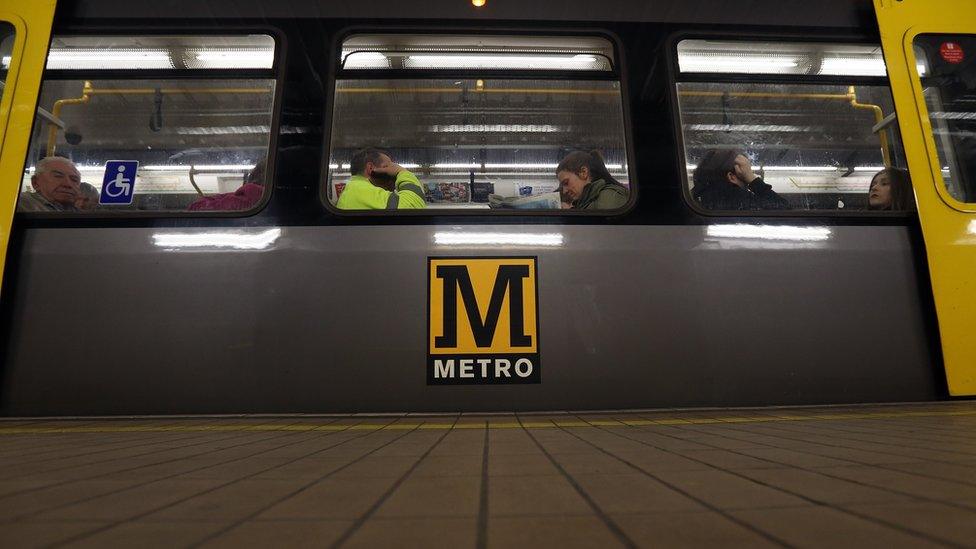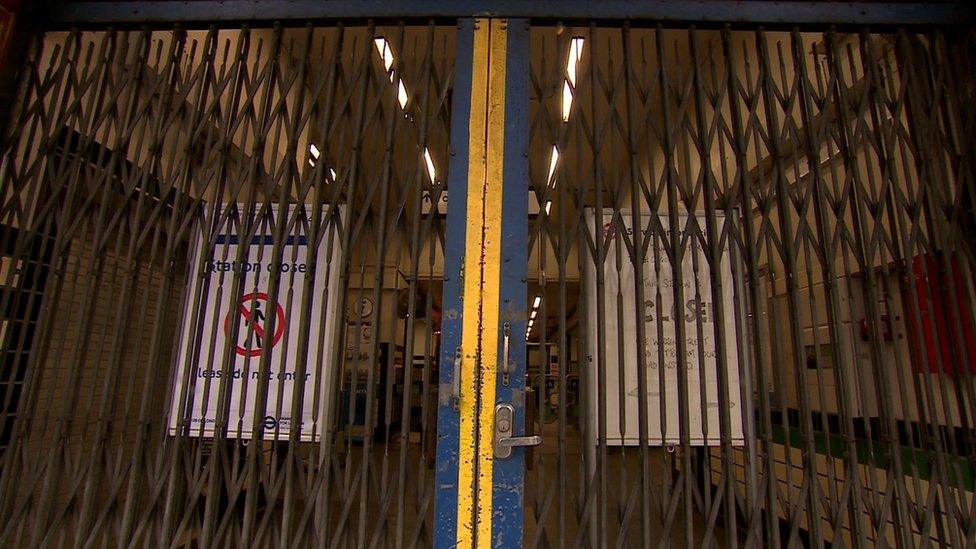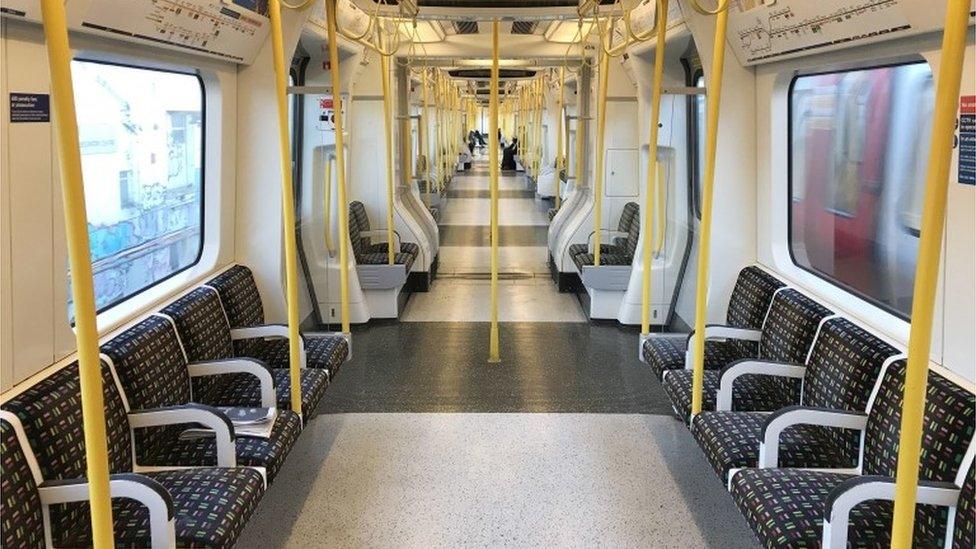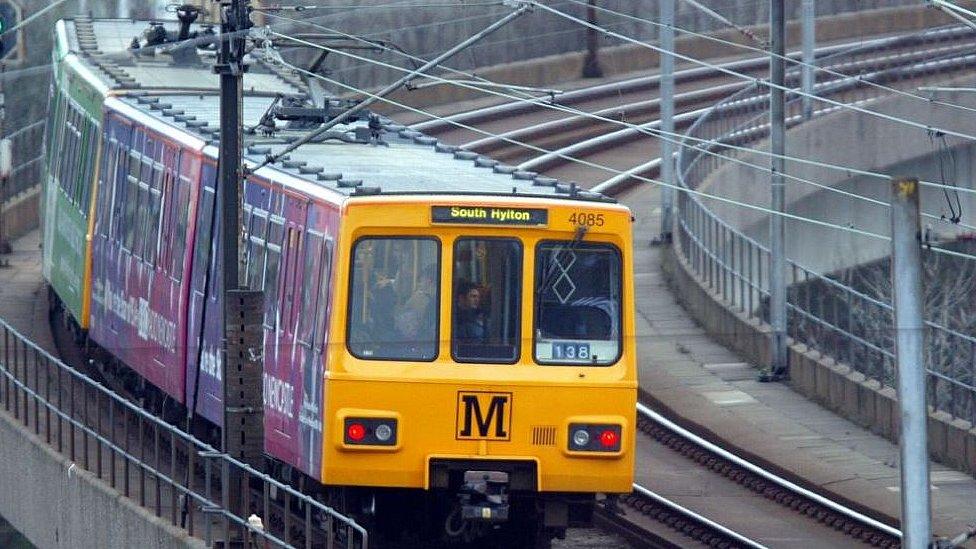Coronavirus: Tyne and Wear Metro facing 'significant challenge'
- Published

Metro passenger numbers are down 8% so far in March
Tyne and Wear Metro bosses have warned it will be a "significant challenge" to keep trains running since coronavirus reduced ticket revenue.
Operator Nexus said services could continue in the immediate future but it needed to ask the government for help.
Passenger numbers are down 8% with a further drop expected as more people self-isolate or work from home.
Finance director John Fenwick said the priority was to "keep the Metro and other key services running".
"We have the financial resilience to do this," he said.
"In the longer term, because of the reliance we place on income from the fares we charge and government subsidy, we will need additional financial support from the Department for Transport who are already aware of the significant challenges we face."

A SIMPLE GUIDE: What are the symptoms?
AVOIDING CONTACT: Should I self-isolate?
LOOK-UP TOOL: Check cases in your area
MAPS AND CHARTS: Visual guide to the outbreak

Revenue from fares for the 2019/20 financial year was already about £1.2m below target, bosses said in November.
Drivers' industrial action has exacerbated the situation, the Local Democracy Reporting Service said.
Metro trains are now running to a reduced timetable with main services remaining under review.
Nexus has lifted restrictions on elderly passengers travelling for free early in the morning after some supermarkets announced they would dedicate their early trading hours specifically to older or disabled customers because of panic buying.
Concessionary bus or Metro pass holders will now be allowed to use them before 09:30 on weekdays.

- Published19 March 2020

- Published17 March 2020

- Published7 February 2020

- Published28 December 2019
